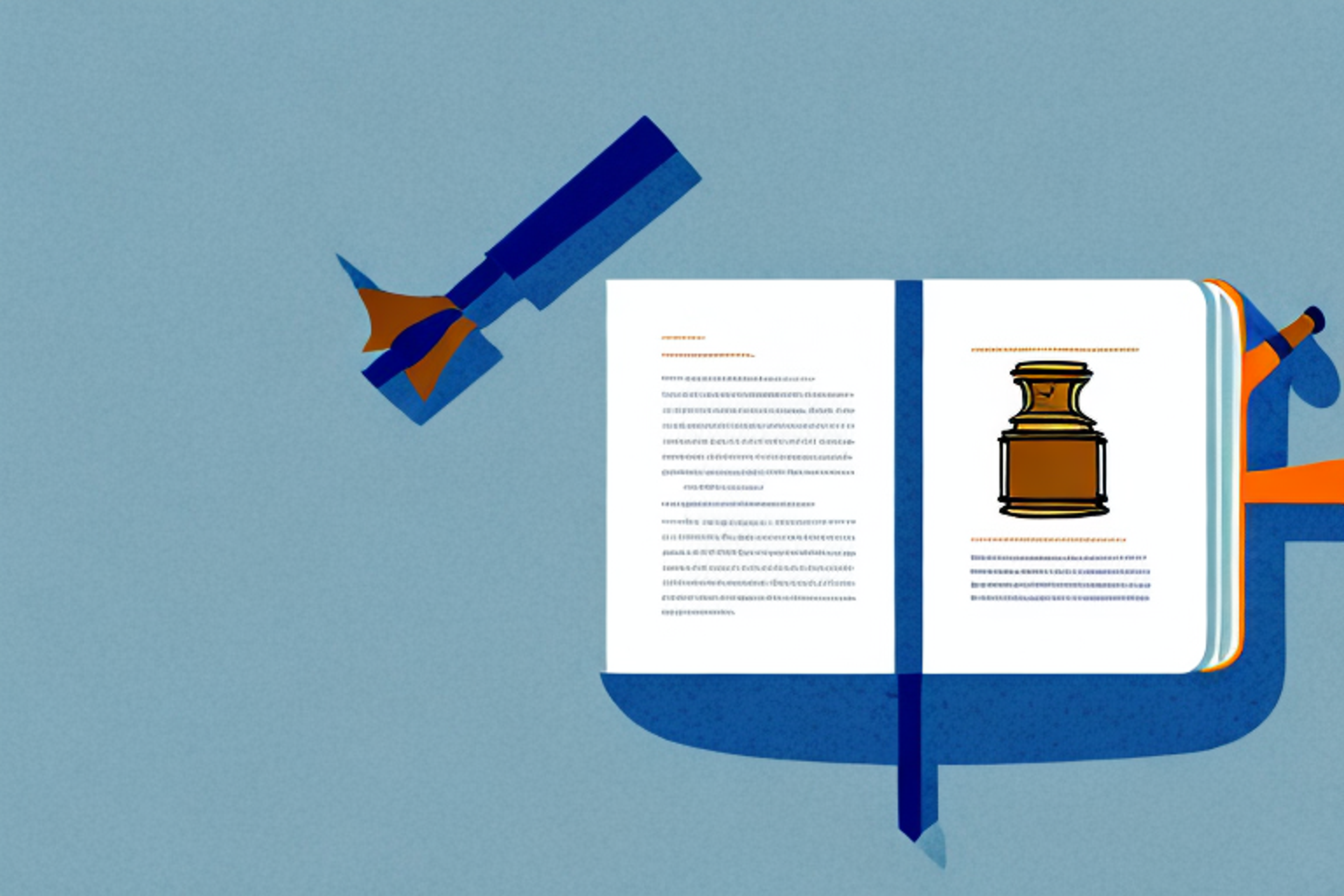How to Write a Compelling Personal Statement for University of Illinois--Urbana-Champaign College of Law
Learn how to craft a powerful personal statement that will impress the admissions committee at the University of Illinois--Urbana-Champaign College of Law.
Posted March 6, 2025

Table of Contents
Free Event

Featuring Indrani S.
What You Can Do NOW to Prepare for Your Law School Applications
Starting Monday, May 5
11:30 PM UTC · 60 minutes

Featuring Indrani S.
If you're considering applying to the University of Illinois--Urbana-Champaign College of Law, you're probably aware of the importance of crafting a strong personal statement. This document serves as your opportunity to convince the admissions committee that you're the right fit for their program. In this article, we'll explore the key elements of a successful personal statement and provide tips, tricks, and strategies for crafting a compelling essay that showcases your talents, skills, and experience.
Understanding the Importance of a Personal Statement in Law School Admissions
Before we dive into the details of how to write a strong personal statement for the University of Illinois--Urbana-Champaign College of Law, it's important to understand why this document is so crucial. In brief, your personal statement is your chance to demonstrate your interest in and aptitude for the field of law, as well as your unique experiences and qualities that will contribute to the legal community at the University of Illinois--Urbana-Champaign. The personal statement enables the admissions committee to get to know you as an individual, beyond the numbers on your resume or transcript.
One important aspect to keep in mind when writing your personal statement is to avoid cliches and generic statements. Admissions committees read hundreds of personal statements, and they can quickly spot a formulaic essay that lacks originality. Instead, focus on telling a compelling story that showcases your personality, values, and goals.
Another key factor to consider is the tone of your personal statement. While it's important to be professional and articulate, you also want to inject some personality and passion into your writing. This will help you stand out from other applicants and demonstrate your enthusiasm for the field of law.
Researching the University of Illinois--Urbana-Champaign College of Law and Its Admissions Process
Before you begin writing your personal statement, it's essential to do your research. This research should include a deep dive into the University of Illinois--Urbana-Champaign College of Law's website, where you can learn about their mission and values, their faculty and academic programs, and their student body. You should also review their admissions requirements and process, including any specific guidelines or prompts for personal statement writing. The more you know about the school and its admissions process, the better equipped you'll be to write a personal statement that resonates with their values and objectives.
Additionally, it's a good idea to reach out to current students or alumni of the University of Illinois--Urbana-Champaign College of Law to gain further insight into the school's culture and community. You can also attend virtual or in-person information sessions and events hosted by the school to learn more about their programs and opportunities. By taking the time to thoroughly research the school and connect with its community, you'll be able to demonstrate your genuine interest in attending and contribute to a more compelling personal statement.
Identifying Your Unique Qualities and Experiences to Highlight in Your Personal Statement
One of the most crucial aspects of personal statement writing is identifying the qualities, skills, and experiences that make you a unique and compelling candidate for law school. This might include your academic achievements, work experience, extracurricular activities, community involvement, or personal background. You should take the time to brainstorm and reflect on your own experiences and values, considering how they align with the University of Illinois--Urbana-Champaign College of Law's goals and ethos.
It's important to remember that your personal statement is your opportunity to showcase your personality and voice. Admissions committees want to get a sense of who you are beyond your academic and professional achievements. Consider incorporating anecdotes or personal stories that demonstrate your character and values. Additionally, make sure to tailor your personal statement to the specific law school you are applying to. Research the school's mission statement, values, and programs, and highlight how your unique qualities and experiences align with those aspects of the school.
Crafting a Strong Opening Paragraph that Grabs the Reader's Attention
The opening paragraph of your personal statement is your chance to grab the reader's attention and draw them in. This paragraph should be concise and compelling, highlighting the most relevant and interesting aspects of your background and experience. Consider beginning with a striking quote, anecdote, or question that sets the tone for the essay and piques the reader's interest.
It is important to remember that the opening paragraph sets the tone for the rest of the essay. Therefore, it is crucial to avoid clichés and generic statements that do not add value to your personal statement. Instead, focus on showcasing your unique perspective and personality. Use vivid language and descriptive details to paint a picture of who you are and what you have to offer. By doing so, you will not only capture the reader's attention but also leave a lasting impression.
Structuring Your Personal Statement for Maximum Effectiveness
The structure of your personal statement is another critical element to consider. You should aim for a clear and logical progression of ideas, with each paragraph building on the last and contributing to an overall theme or message. Consider using headings and subheadings to guide the reader and break up longer paragraphs into more manageable chunks. Be sure to include a strong conclusion that summarizes your main points and leaves a lasting impression on the reader.
One effective way to structure your personal statement is to use the "STAR" method. This involves outlining a Situation, Task, Action, and Result for each of your experiences or achievements. By following this structure, you can clearly demonstrate your skills and abilities, while also providing concrete examples to support your claims.
Another important aspect of structuring your personal statement is to ensure that it flows well and is easy to read. This means using transition words and phrases to connect your ideas and create a cohesive narrative. Additionally, you should avoid repeating information or including irrelevant details that detract from your overall message.
Avoiding Common Mistakes and Pitfalls in Personal Statement Writing
There are several common mistakes and pitfalls that applicants can fall into when writing personal statements for law school. Avoid generic or clichéd language, as well as overly flowery prose or jargon. Be sure to proofread your essay carefully for grammar and spelling errors, and avoid oversharing personal or sensitive information that could detract from your professional image. Finally, be sure to follow any specific guidelines or prompts provided by the University of Illinois--Urbana-Champaign College of Law when writing your personal statement.
Another common mistake to avoid is failing to tailor your personal statement to the specific law school you are applying to. Each law school has its own unique culture, values, and priorities, and your personal statement should reflect your understanding of these factors. Research the law school thoroughly and highlight how your experiences and goals align with the school's mission and values.
Additionally, it's important to strike a balance between showcasing your achievements and demonstrating your potential for growth. While it's important to highlight your accomplishments, it's equally important to show that you are open to learning and willing to take on new challenges. Admissions committees want to see that you have the potential to succeed in law school and beyond, and that you are committed to personal and professional growth.
Tips for Showcasing Your Passion for Law and Commitment to Legal Studies
Showcasing your passion for law and commitment to legal studies is essential when writing a personal statement for the University of Illinois--Urbana-Champaign College of Law. Consider sharing specific experiences or anecdotes that demonstrate your interest in the field, as well as any research or academic projects you've undertaken related to the law. Be sure to highlight the skills and qualities that make you well-suited for a career in law, such as critical thinking, problem-solving, and effective communication.
Another way to showcase your passion for law is to discuss any extracurricular activities or volunteer work you've done that relates to the field. For example, if you've volunteered at a legal aid clinic or participated in a mock trial competition, be sure to mention it in your personal statement. This demonstrates not only your interest in law, but also your dedication to making a positive impact in the community.
Additionally, it's important to show that you have a clear understanding of the legal profession and the challenges that come with it. You can do this by discussing current events or legal issues that interest you, and explaining why you find them compelling. This shows that you are not only passionate about law, but also knowledgeable about the field and its complexities.
Incorporating Concrete Examples and Specific Details to Make Your Personal Statement Stand Out
In order to make your personal statement stand out from the crowd, it's important to incorporate concrete examples and specific details. This might include describing a particular project or experience in detail, or using facts and statistics to support your arguments. Be sure to paint a vivid picture for the reader, so they can understand exactly what makes you a unique and compelling candidate for law school at the University of Illinois--Urbana-Champaign.
One effective way to incorporate concrete examples and specific details is to use anecdotes. For example, if you're applying to law school, you might share a story about a time when you witnessed an injustice and were inspired to pursue a career in law. By sharing this personal experience, you can demonstrate your passion and commitment to the field.
Another strategy is to use sensory language to create a more immersive experience for the reader. For instance, if you're describing a research project you worked on, you might use descriptive language to paint a picture of the sights, sounds, and smells of the lab. This can help the reader feel like they're right there with you, experiencing the project firsthand.
Editing and Polishing Your Personal Statement for Clarity, Coherence, and Professionalism
Once you've drafted your personal statement, it's essential to edit and polish it for clarity, coherence, and professionalism. Be sure to read your essay aloud or have someone else read it to you, to catch any awkward phrasing or unclear language. Pay attention to the flow and organization of your essay, ensuring that each paragraph leads smoothly into the next. Finally, double-check spelling and grammar, and make sure your formatting is clean and professional.
Seeking Feedback from Advisors, Professors, and Experienced Lawyers to Improve Your Personal Statement
Before you submit your personal statement, it's often helpful to seek feedback from advisors, professors, or experienced lawyers. Consider sharing your essay with trusted colleagues or mentors for their input and suggestions. Often, an outside perspective can help you refine and improve your writing, making your personal statement even more compelling and effective.
Submitting Your Personal Statement with Confidence: What to Expect During the Admissions Process
Submitting your personal statement can be a nerve-wracking experience. However, with the right preparation, you can feel confident that you've put your best foot forward. Be sure to follow the University of Illinois--Urbana-Champaign College of Law's guidelines for submission, and keep track of any deadlines or additional documentation required. Once you've submitted your personal statement, remember that the admissions process may take several weeks or months. Be patient, and keep up your good work and positive attitude as you wait for a decision.











